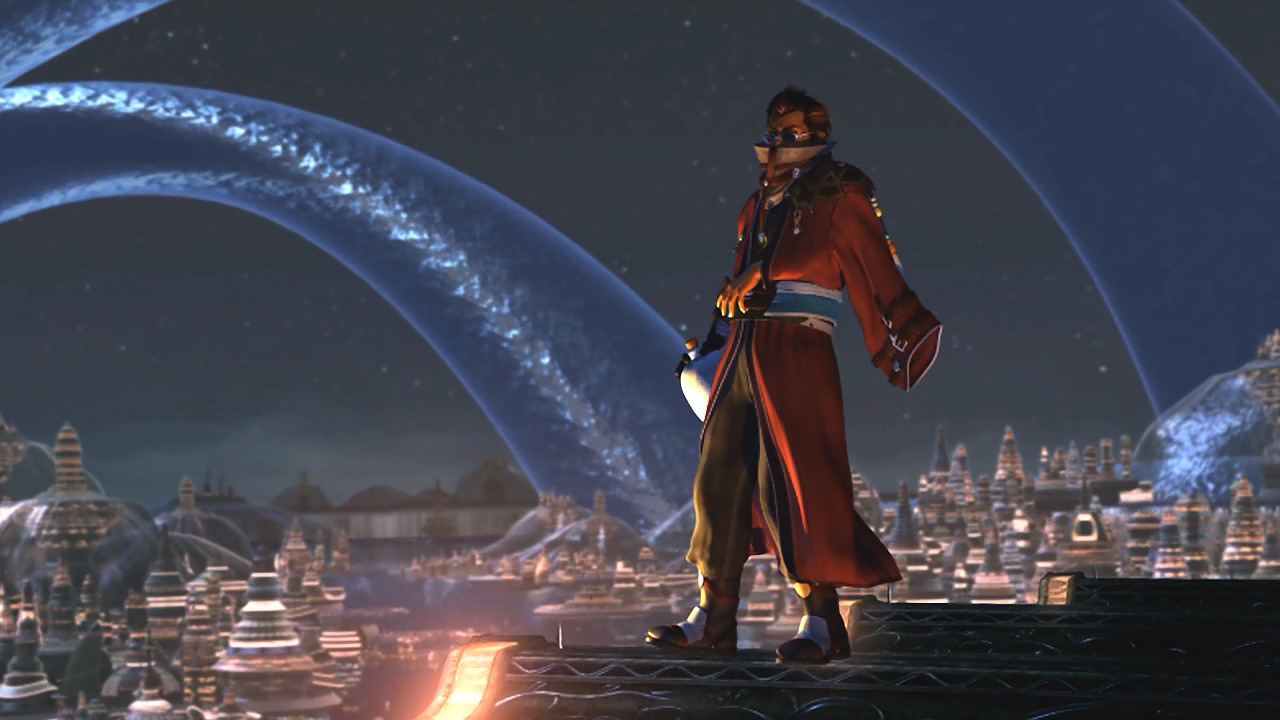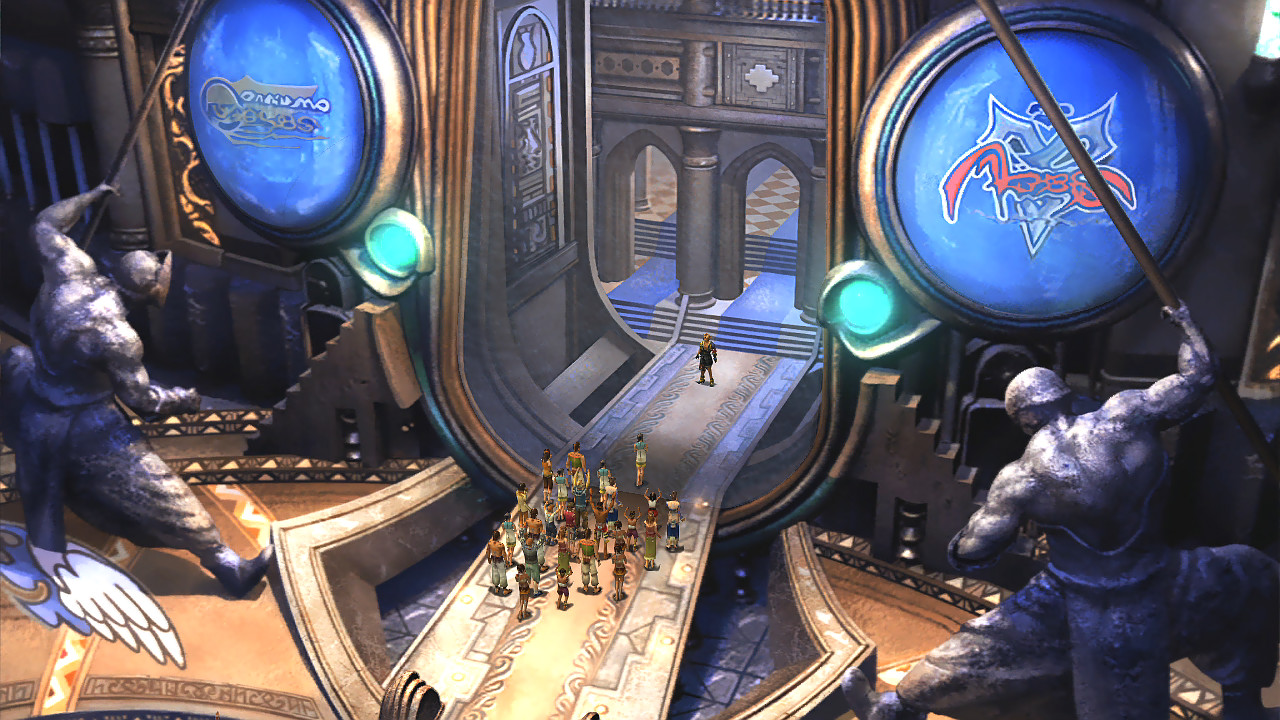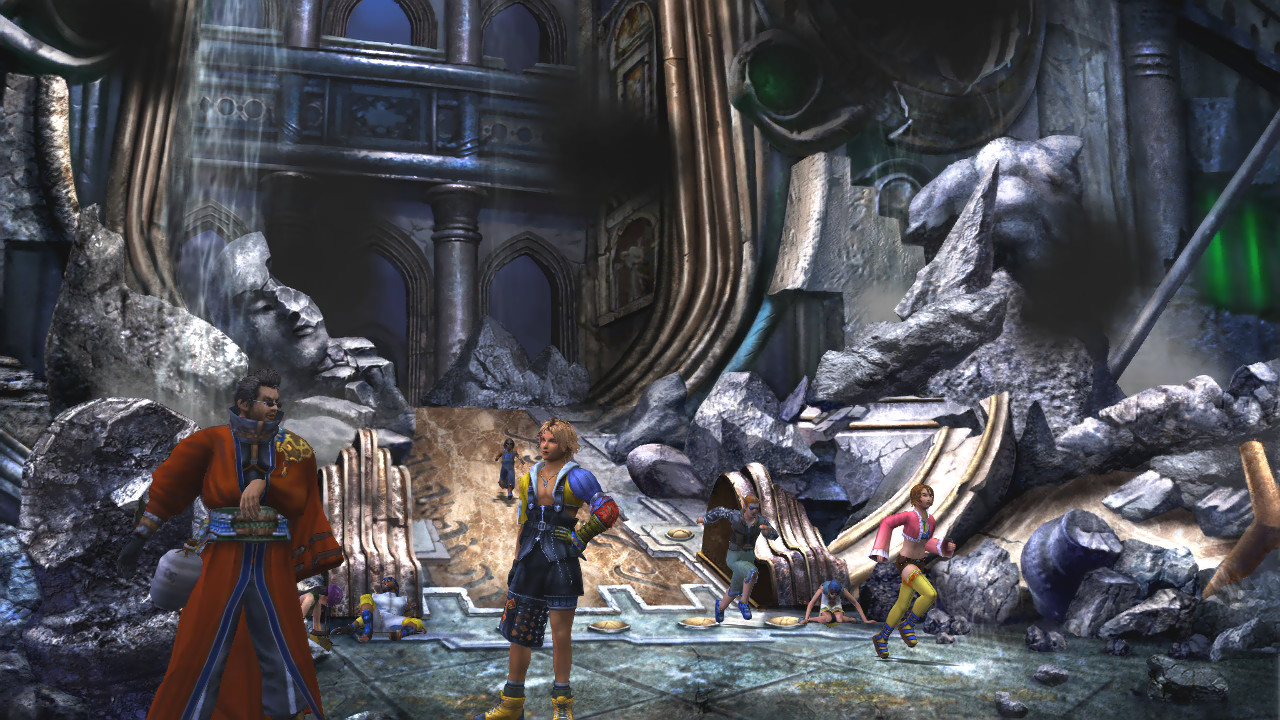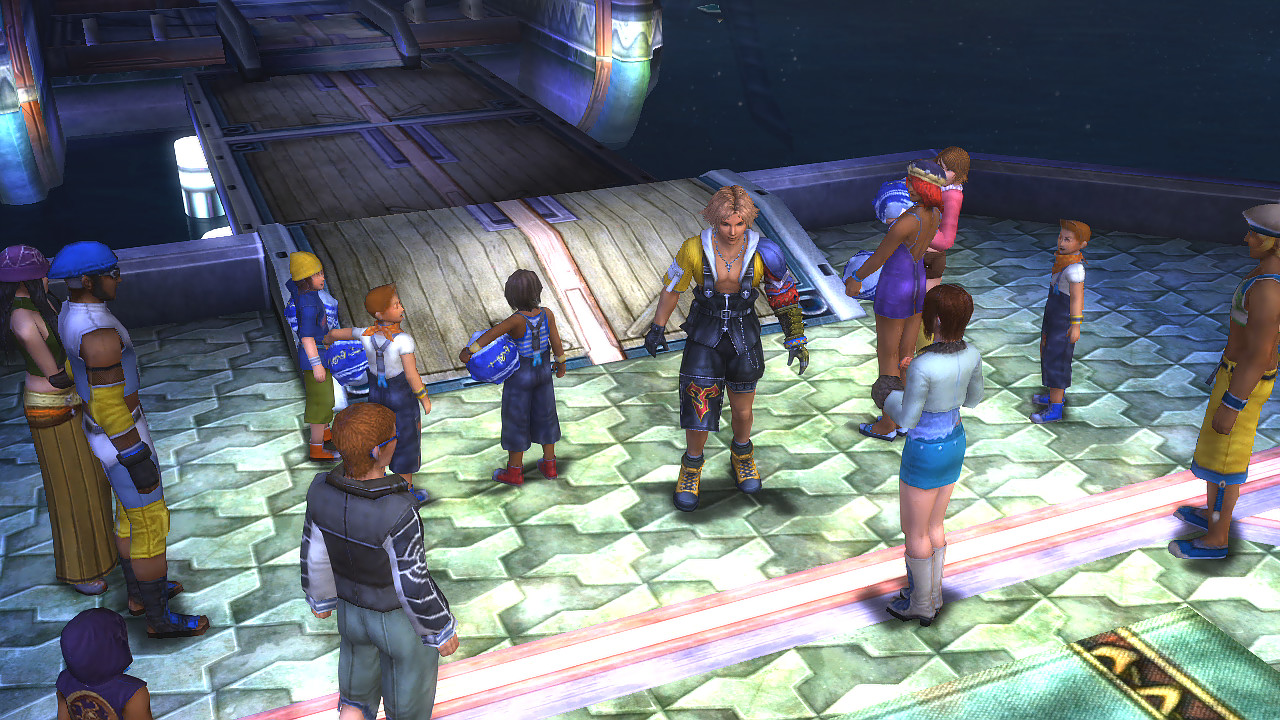
[ad_1]
We put a lot of ‘new’ in Final Fantasy X. It was the first game in the Final Fantasy series to be built in full 3D, we introduced new types of presentation, a new battle system… it even came out on new hardware. It also spawned the first direct sequel in the series’ history – Final Fantasy X-2.
This game was similarly fresh, and had a very different style, tone, and structure to the rest of the series.
I worked as producer on Final Fantasy X and its sequel. With both available on PlayStation Now in Final Fantasy X | X-2 HD Remaster, I thought I’d share some memories of working on these very special games.

Final Fantasy X
Final Fantasy X was the first game in the series to be developed for the PS2. There are always challenges and decisions to be made when working with new hardware, and that was certainly the case for Final Fantasy X.
The PlayStation 2 effect
One key decision we faced was around the visuals. Even though the PS2 offered a big increase in power from the original PlayStation, there was still a limit to the hardware specs, so to depict the new graphical style, we had to choose whether to prioritize resolution or the number of colors.
Initially, we thought it would be beneficial to use more colors – we thought that would help us really depict the world of Spira in a vibrant way. However, when we looked at the trends in other companies’ games released while we were working on development, it became increasingly clear that fans were hoping for higher resolution next-gen games.

As a result, we switched from focusing on the number of colors to making the game as high resolution as possible – and we did this about six months before the master deadline!
This meant we had to make major modifications to the game we’d made so far, which was a big risk in terms of the schedule. Fortunately, our excellent programmers and designers did a wonderful job.
In the end, a ‘high-res’ Final Fantasy X was born, and we were able to achieve the sort of high-end visuals you’d expect from a next- gen console.
An in-Spira-ing world
The new visual style added other challenges too. For example, Final Fantasy X was the first game in the series to not include a world map – this is because the game was built in full 3D, and that’s expensive!
As game creators, we sometimes have to make decisions that balance game design with ballooning production costs. In this case, dropping the overworld map was the most realistic solution we had available.
Our prior games, Final Fantasy VII and Final Fantasy VIII had been set in steampunk and science fiction-inspired worlds respectively, so we wanted to do something different.
This might be also the reason why Art Director Yusuke Naora came up with the concept of having a world with an Asian feel to it, and that became the inspiration for Spira.

New battle plans
That wasn’t the only break from tradition introduced in Final Fantasy X either – we also reinvented the combat system.
The previous few games had used the Active Time Battle (ATB) system, in which players could take actions whenever a bar filled in real-time. For the new game, we wanted to create battles with greater strategic depth than ever before.
The designer who worked on the battle system had also worked on Front Mission, and he was very skilled at creating strategy games, so we moved to a turn-based system instead.
We also changed how character progression works by introducing the Sphere Grid. This let players manually improve their characters by choosing upgrades from a grid. I’ve been a great fan of board games for a long time, and I wanted to recreate that analogue sensation of moving pieces and filling up the board with them.
Making our voices heard
One new feature that I was personally very passionate about was the introduction of voice acting. I mentioned this in my last blog, but I felt a bit dissatisfied with the fact that Final Fantasy VIII wasn’t voiced.
We achieved more realistic visuals and sounds, but when I think about the scenes in that game, I believe they would have been even more emotional if there had been voice acting included. That was the driving force to make it happen for Final Fantasy X.
Of course, this was the first time we’d ever recorded voiced lines, so it was a lot of work to get it to come to fruition. Nowadays, it’s the norm to get each cast member to go into the recording booth one at a time, and then record all their lines separately. However, back in the day we got multiple cast members to go into the studio at once and record the conversation scenes together.
Because of this, I think that we were able to bring out natural performances, despite this being our first time doing it.
Final (Fantasy) thoughts
Ultimately, I’m proud of what we achieved with Final Fantasy X. I think it’s a landmark game – in terms of the scenario, graphics, camera work, sound, voices, and motion capture, it achieved the ideal cinematic quality that the Final Fantasy series had been aiming for.
I think that the style perfected here helped to establish the look of future Final Fantasy games. One of which was Final Fantasy X-2.

Final Fantasy X-2
After Final Fantasy X, we started to feel like we didn’t want the world of Spira and its characters to be over in one chapter, and we wanted to let them take center stage and flesh them out even more.
That’s why we started production on Final Fantasy X-2 – the first direct sequel in the series’ history. We decided to explore a world that had become peaceful after the events of the previous game and tell a different kind of story.
Rather than the theme from the previous story that delves into particular relationships, such as between a man and woman or parent and child, we wanted a bright and light-hearted narrative that would give the game a cheery tone.
The Gullwings assemble
That upbeat attitude was reflected in the game’s playable characters. Unlike previous games in the series, Final Fantasy X-2 has an all-female party: Yuna, Rikku and a new character, Paine.
Many games at the time, not just Final Fantasy, had male protagonists and I wanted to tell a story with Yuna as a strong female character. I thought that would strike a chord with even more players.
The tone is further reinforced by the structure of the game. Unlike the Final Fantasy X, in which you follow the drama in a linear fashion, the quests in Final Fantasy X-2 can be accessed in any order. To increase the variety even more, we increased the number of minigames available in the game.
I recall that the most challenging to make was Sphere Break – a strategically deep coin game. A single game designer working on the game everything, including the programming, single-handedly!
Dress to impress
When it came to combat, Final Fantasy X-2 moved to a new version of the ATB system, which let players time their attacks for combos and more effective attacks. You may be wondering: why the change from the prior game’s systems? It’s because the designer for the battles changed!
The assistant game designer from Final Fantasy X became the lead for its sequel, and he wanted to use a different system.
A big element of the new system were dresspheres, which allowed the party to seamlessly switch between different roles in combat. For example, Yuna could change from a damage-dealing Gunner to healing White Mage, a Thief or many more options in the heat of combat – each accompanied with a flashy outfit change.
This system came about partly as a result of the story of the original Final Fantasy X. In that game, Summons end up disappearing from the world, so the transformations were a way to work in the spectacular visual effects players had come to expect.
For the animations themselves we looked to a genre of kids’ TV shows in Japan, in which the heroes transform or take on a new form. The best part of each episode is when the character transforms with a dynamic performance, and we took inspiration from this.
What’s in a name?
It may sound odd, but one of the biggest challenges we faced when making Final Fantasy X-2 was what to call it. Having a sequel to a mainline game was unheard of, and when we suggested “X-2” the company was initially worried that it would be mistaken for Final Fantasy XII and turned it down. Since then, they’ve grown fond of it of course.
Ultimately the game proved more divisive than other Final Fantasy games – I suspect that’s due in part to the fact that its bright and poppy direction gives it a very different flavor to other entries in the series.
But I think the way that Final Fantasy games try to break away from preconceived ideas is something truly wonderful about the series – and Final Fantasy X-2 is a perfect example of that.

Both Final Fantasy X and Final Fantasy X-2 are available to stream and download with PlayStation Now.
[ad_2]





